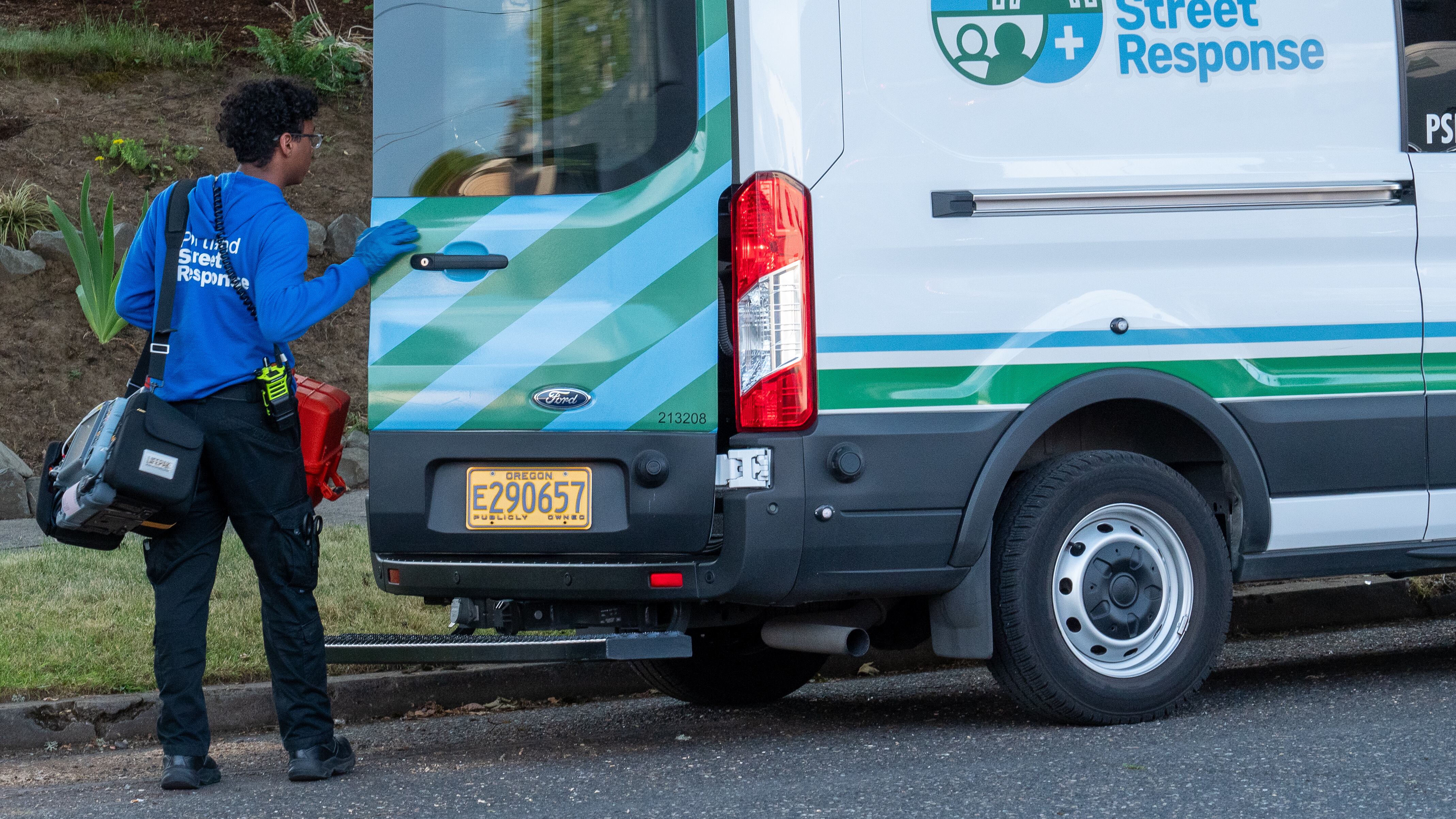City Commissioner Carmen Rubio is dipping her toes into the uncertain future of the Portland Street Response program and inquiring whether money to fund a new police accountability board could be partially rerouted to the roving mental health program.
Rubio, according to her chief of staff, Jillian Schoene, has asked the City Attorney’s Office if Portland Street Response—the city program that sends mental health first responders and medics to aid people in crisis as an alternative to police—would be eligible for some of the 5% of the Portland Police Bureau budget that’s set aside for the new, independent policy watchdog board that voters approved in 2020.
The goal, Schoene says, is “to bring some financial stability to this very important program.”
Rubio’s request comes at a time of uncertainty for Portland Street Response. It operates under Portland Fire & Rescue, but has consistently had culture clashes with the fire bureau. Its program manager, Robyn Burek, recently stepped down. And the commissioner now in charge of the fire bureau, Rene Gonzalez, is loyal to the fire union and has said he’s open to transferring Portland Street Response to Multnomah County. Gonzalez also restricted the program from handing out tents to the unhoused earlier this year. And the fire bureau, struggling with high overtime costs, is likely to take budgetary precedence over PSR.
It’s unclear what Gonzalez’s game plan is for the program, though he insists he supports expanding it to 24/7 operations and fully funding it. Supporters of PSR are skeptical of Gonzalez’s commitment to the program, however.
Now, Rubio, who oversees neither the police or fire bureaus, is stepping in. She’s eyeing a chunk of funding from the Portland Police Bureau that, thanks to a 2020 ballot measure approved by 82% of Portland voters in the wake of the George Floyd protests, is set aside for the creation and operation of a new independent police oversight group that a volunteer commission is currently working on building. That oversight body is set to have broader powers than the current police accountability system. The ballot measure stipulated that 5% of the Police Bureau’s budget—what would amount to $12.8 million this fiscal year—be set aside for the future oversight board.
Gonzalez is aware of Rubio’s request, Schoene says, and “welcomed the conversation and inquiry.”
Schoene says whether a diversion of funds is possible is unclear. “I haven’t heard back from legal on it yet,” she says.
